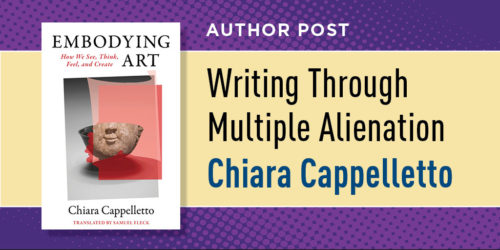Barthes after Barthes — Sylvère Lotringer on The Preparation of the Novel

In the current issue of Frieze Sylvère Lotringer offers an uncommonly perceptive and thoughtful assessment of Roland Barthes’s life’s work and his attempt to prepare for and write a novel after the death of his mother. Barthes’s thoughts about writing a novel became the source of course and seminars he gave at the Collège de France.
The lectures Barthes gave that comprise The Preparation of the Novel were given in the wake of his mother’s death. As Lotringer explains, the event had a profound impact on Barthes:
For months afterwards [Barthes] felt deeply disengaged, a kind of ‘listlessness which bears upon everything I do’. He envisaged making a radical break with his past. He would renounce everything – his courses and academic duties, Collège included – and settle into a life of writing. Dante had done it ‘nel mezzo del cammin’ (in the middle of life’s journey). Marcel Proust hesitated for a few years after his mother’s death, remaining ‘without will or clarity’, drawn between two contrary directions: essay or novel. Barthes was divided as well, between affect and intellect. Would he be, like them, capable of going over to the other side?
As Lotringer describes the works of the novelists he admired, particularly those of Proust and Barthes, informed his own preparation for a novel and his attempt to merge biography and art. While theory still shaped his views, Barthes saw the attempt to write a novel as moving his work in new directions. Lotringer writes:
In practical terms, Barthes spent the entire first part of Preparation brilliantly unravelling his version of the haiku, but this didn’t seem to get him much closer to his goal. Often, in order to fill the gaps, he fell on technical or sociological commentaries about the novel, a biographical form that had become all the more desirable in his eyes at a time when it was rapidly becoming extinct – can one still use a novelistic form in an era that doesn’t allow for an individual life? His personal quest merged into something far bigger, an attempt to resurrect, maybe for the last time, a great narrative form that had sustained writers’ vocations for centuries and expressed the essence of life.
His untimely death at the age of 64 after being run over by a van in front of the Collège de France made the completion of the novel impossible and in fact he never got beyond the preparation. Lotringer concludes his essay writing:
Barthes’ preparation was the beginning of the journey, but his novel never quite began, and its end was cut short before he could ever get there. He was hoping that, eventually, it would all add up, that the short and the long would mesh into a continuous narrative, a single thread that he could hold on to. But he never had a chance fully to confront the Minotaur, even beneath the mask. Many suspected – it was unavoidable – that his untimely death had in fact been all too timely. What he wrote about Proust in the Preparation may be more to the point: ‘Proust could do nothing but die; if he hadn’t, he probably wouldn’t have written anything new, only kept adding to the work …’




